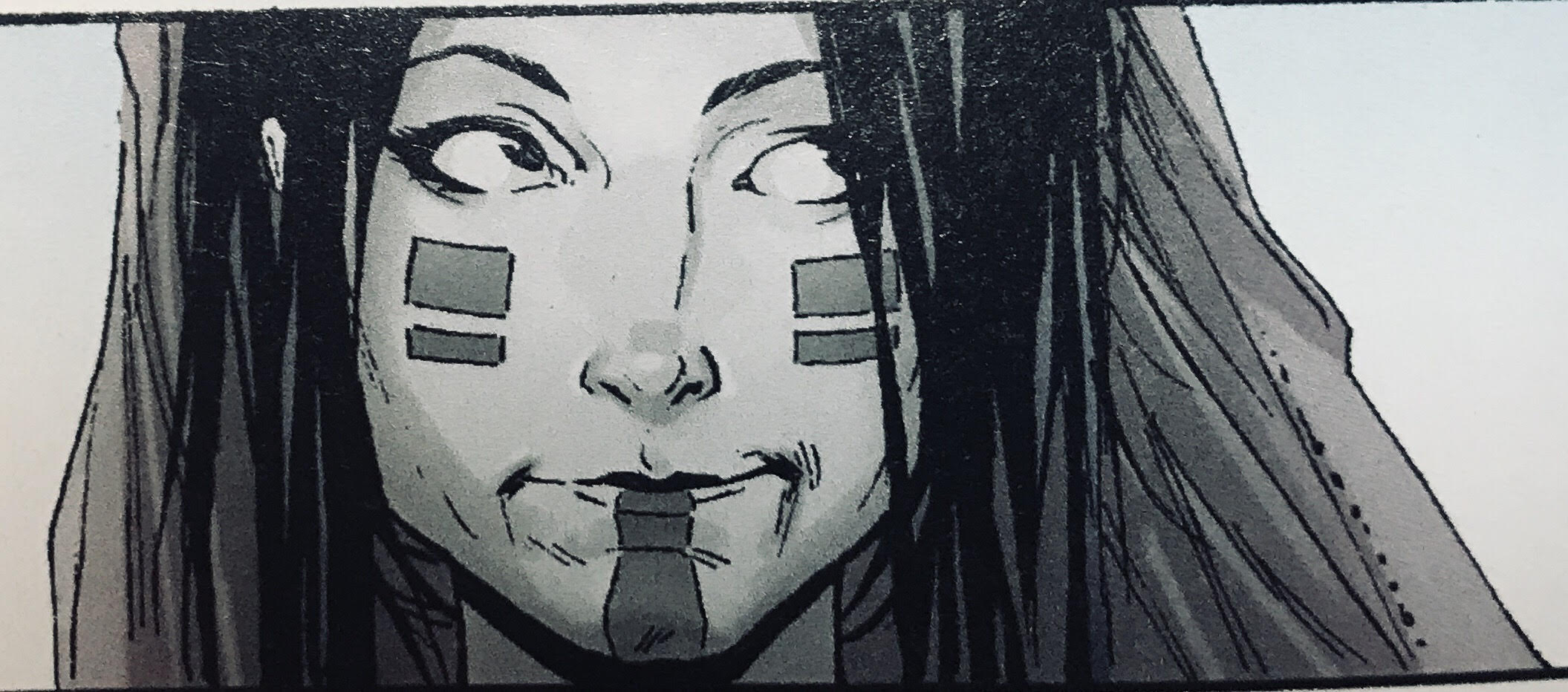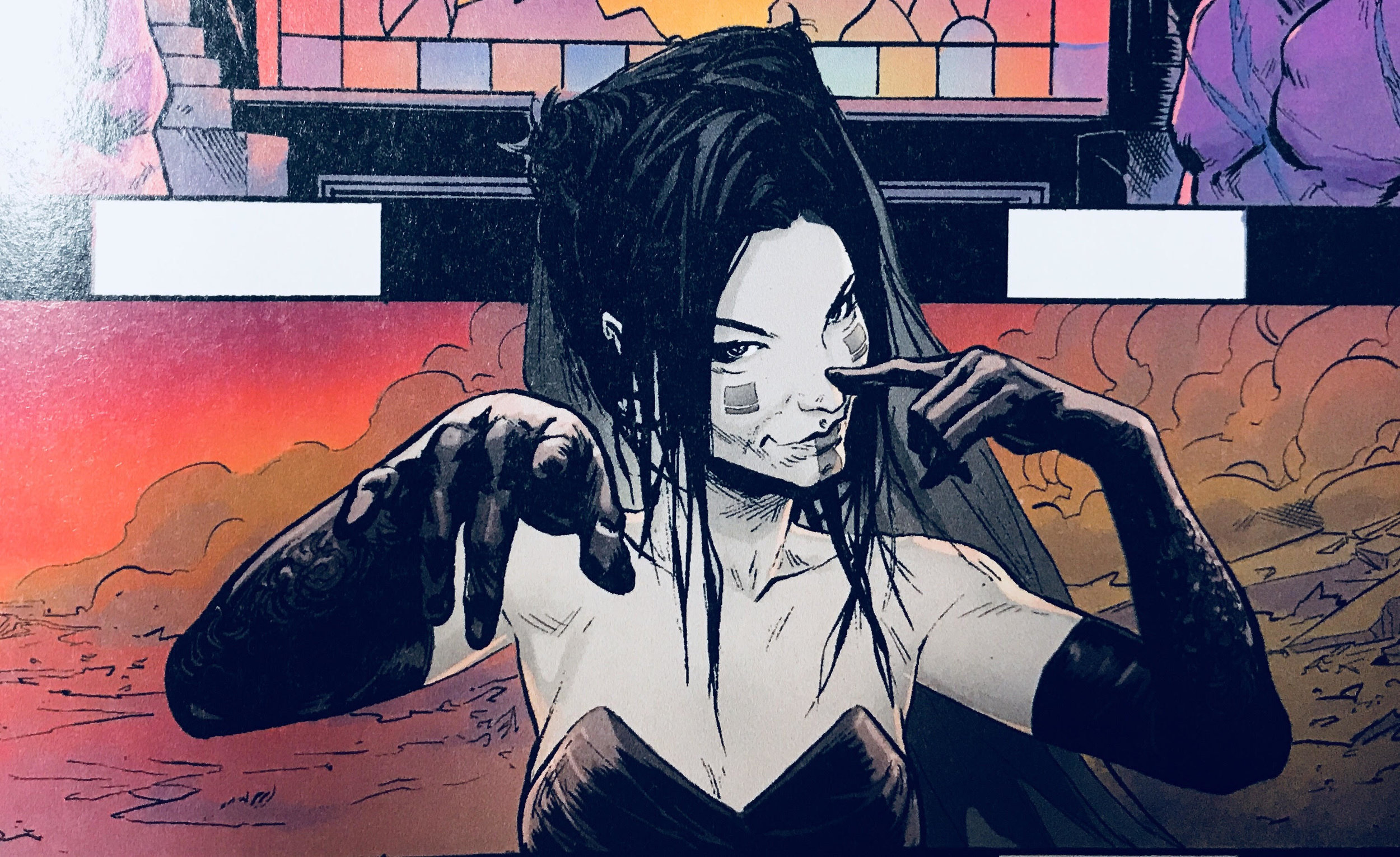How Thanos Won: A Look at Donny Cates’ Epic Run
Let’s talk about one of Marvel’s best comics in years—Thanos Wins by Donny Cates—and how it was an unlikely success.
The solicit for the first issue, #13, teased a story about what happens when Thanos wins, written by Donny Cates and drawn by Geoff Shaw, a duo that was rising, to be sure, but by no means household names with the Big 2 superhero crowd.
Essentially, Marvel had a somewhat untested creative team (strong indie work aside) taking over a book about a villain that was 12 issues into a run, teasing a plot about a future where everyone’s favorite heroes had been murdered, brutally.
Then the incredible happened.
The first issue sold out. The second issue sold out. Both issues went for second printings. A spinoff series was announced. Online buzz started. Copies started going for more than quadruple the cover price on eBay. Retailers said years from now the trade would be an evergreen seller, with casual fans coming off the street to find it.
Simply put, Thanos won.
And thank the divine comic book forces it did. Marvel needed the emergence of a writer like Cates. It had, after all, lost Brian Michael Bendis—its most influential voice of the past two decades—to rival DC. It needed a bold new voice to push its marquee superhero properties in bold new directions. Cates delivered and as a reward is now getting a summer event (Death of the Inhumans) and a forthcoming run on Venom. Basically, Thanos could mark the rise of Cates at Marvel, the start of a new era.
With this significance in mind, let’s look at some of the elements that propelled Cates, Shaw, colorist Antonio Fabela, and Marvel to such a massive W here.
Cates' Voice
The first thing that tickled my brain (ew) about Thanos was the way Cates writes with such a confident voice. Cates work has more narration than most, but his language is so compelling, one hardly notices.
His sentences are clear and accessible, yet often long, winding, and poetic, leading readers on quick journeys that tend to end with full-on outlandishness. Check out these examples:
“After all, when one is murdering every sentient being in the cosmos by hand...a lapse in perfect record-keeping can be forgiven.”
“The last titans stood over the body of a shattered angel in a church built for their greatest love.”
“And of course, this is how it ends. The last of the titans fighting for the hand of death at the dusk of time.”
“Each Thanos taking a combined eternity of pain and sorrow out on themselves. Dealing not in words or feelings, but in their shared language of blood.”
There’s real voice to Cates writing, and while the two couldn’t be more different, the untethered confidence in that voice actually reminds me of a young Brian Michael Bendis on Powers or Ultimate Spider-Man, like a writer talking directly to you, telling a story he just has to get out because it’s that good.
Each opening line in Thanos is well done, but look at #16’s:
“When he was a younger man, and not yet a cosmic-fueled engine of time-traveling murder, Frank Castle’s wife and children were shot to death before his eyes.”
I Tweeted about liking this line, and Donny Cates responded with, “Haha. Yeah I’m pretty happy with that nonsense.” That gets at another thing working well in Thanos: despite the dark story and violent happenings, you can tell Cates is living a dream and having a blast.
I mean, try to read this panel and not laugh with him. ‘Nuff said!
Death’s Mercurial Facial Expressions
Cates wasn’t the only one having fun, though. Shaw (whose artwork with Fabela really owned the grandiosity of Cates’ script) did an incredible amount of work with a few mercurial facial expressions once Thanos lady love, Death, finally showed up. Observe:
Now seems as good a time as any to point out that part of the reason this plot succeeds is because it focuses on the most compelling and relatable thing about Thanos—his core motivation is that he’s a passionate man who is deeply in love. But more about the story in the next section...
The Story Structure
Really, Thanos Wins sticks to a pretty classic Hero’s Journey, which gives it a stable framework within which to build all of that nonsense.
Take, for example, the first truly great panel, which comes early in the story's first part:
This is just expert comic storytelling, with a caption giving us a casual contrast to the violent domination Thanos has just wrought. But this is also still the exposition phase of our story, the time before the call to adventure where we’re in Thanos’ status quo, and what Cates’ establishes here is that normal life is one in which Thanos just *shrug* obliterates the Chitauri, a race so fearsome it was the villain in the first Avengers movie.
The rest of the book reads like a game of Cates one-upping himself from there.
Marvel’s Commitment and Support
Thanos Wins is the most significant run at Marvel since Tom King’s 2015 Vision, and I’m drawing that connection to note one way that Marvel did not let history repeat. After Vision, DC swooped in and snapped King up. Marvel must have figured out what it had in Cates, because they signed him months before Thanos' first issue dropped.
And good on them.
Support like that is key to a story as big and seemingly limitless as Thanos Wins. In an endnote for the run's finale, Cates notes he was shocked that Marvel let him do the things in this book. He doesn’t mention this, but Marvel also supported Cates over Jim Starlin, the character’s creator.
See, Starlin was at work on a three-part graphic novel series that he said had a plot close to what Cates did here. No one has gone into detail, so it’s tough to know how much it truly overlapped, but what is known is that Starlin felt Marvel choose Cates’ work over his own, and he quit the publisher because of it.
We don’t know enough to say what Cates’ role (if any) was, and, really, I’m not sure it matters in the context of this conversation. As Oliver Sava noted in an AV Club piece early during Thanos Wins, “it’s all part of a bigger conversation about creator rights as superheroes continue their pop culture dominance.”
I think that’s true, and thus we'll save further examination until we can give the topic the space it deserves.
Thanos Wins
I’ll bring this home by noting Cates' work here is enough for me to buy his future Marvel books without hesitation. I’m also reading his creator-owned series Babyteeth and Redneck, and I'd place him in rarefied air with the aforementioned King and Jeff Lemire, whose work I also buy unconditionally.
What I find maybe the most interesting about Cates is he’s a pretty straight-forward storyteller, rarely toying with form or meta dialogue. He’s kind of a classic writer, in that his stories are driven hardest by character choices, with all plot growing from that. He seems to have an obsession with what drives people to violence that he’s dissecting in his work, and he’s not afraid to use an everyman voice in narration, or go the other way and sound like a poem. Call him the Cormac McCarthy of comics. Too much? Whatever.
Anyway, I’m glad he landed at Marvel and I hope he stays. Marvel’s risk-friendly editorial team seems better suited for Cates’ sensibilities. I should, however, note he has so far shown himself expert at contained mini series with big endings, and is yet to drive a book long-term like Jason Aaron on Thor, or Bendis on Ultimate Spider-Man. If Cates' Twitter is to be believe (and it's not, he literally said he wasn’t doing Venom a day before it was announced he was doing Venom), plans are for Venom to run for many, many issues. I don’t care much for Venom as a character, but with Cates writing, I’m downright excited to check that book out.
Zack Quaintance is a career journalist who also writes fiction and makes comics. Find him on Twitter at @zackquaintance. He lives in Sacramento, California.







